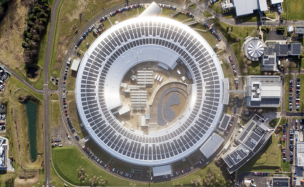Capella Space, a CO-based company that operates a constellation of synthetic aperture radar satellites, is set to be purchased by IonQ, a quantum computing firm that plans to use Capella’s technology as the basis for a space-based quantum communications network.
The all-stock deal valued Capella at $311M, according to SEC filings and yesterday’s $IONQ closing price. It’s expected to close in the second half of the year. Capella has raised $320M in equity capital since it was founded in 2016, according to Pitchbook.
Thesis: “If you want to make sure that you can deliver the benefit of secure, quantum-enabled comms, you need to be in space,” Matt Ocko, a partner at venture firm DCVC and member of Capella’s board, told Payload.
Plug ‘n’ play: IonQ executive chairman Peter Chapman told investors on an earnings call yesterday that Capella’s technology will be used as the basis for quantum space hardware that will ultimately be sold to other satcom firms.
“Capella has an application today which is revenue generating,” Chapman said. “Not only will this give us access to an environment to get the hardware to work in space, but it also gives us our first application and first customers to actually validate this in a real world application.”
Ocko said the technical challenges Capella solved to operate its radar and transmit that imagery to Earth will enable IonQ’s network plans, describing the company as “a platform with bulletproof space heritage, trusted by multiple allies, [that has] already solved all the technical problems to run a space-to-space and space-to-ground quantum comms package.”
Key master: Quantum computing is theoretically capable of breaking existing encryption systems, as well as creating new, more difficult to decipher codes—something that’s of interest to military and intelligence agencies. IonQ has acquired several companies in its efforts to develop a quantum network.
Ah, Capella: An early mover among US SAR start-ups, Capella has four satellites on orbit and sales deals with NASA and US intelligence agencies. In 2023, the company suffered apparent propulsion problems that led its satellites to decay faster than expected, and the loss of a spacecraft in a Rocket Lab launch failure. Founding CEO Payam Banazadeh stepped down that fall and was replaced by current chief Frank Backes, who will now lead IonQ’s quantum space work.
Correction: This story misreported the number of Capella spacecraft on orbit; there are four, following two deorbits in March and May of 2025.




